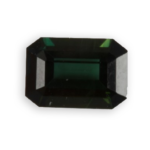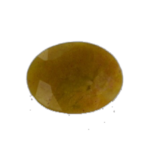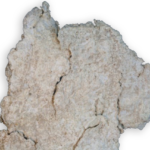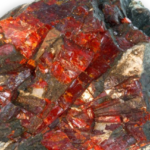
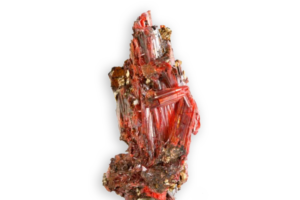
crocoite
Detailed sheet
crocoite
It is named after the “crocus” as the color of its powder is saffron (which comes from this plant).
It was discovered in 1766 in Berezov in the Urals (Russia). It was then called “Siberian red lead”, then it was named crocoïse by Beudant and finally crocoite … The chromium element was discovered and identified by chemist Vauquelin from sample of crocoite.

CHEMICAL CHARACTERISTICS
Pb[CrO4]
lead chromate

PHYSICAL CHARACTERISTICS
Main color
red
Other colors
orange
Color of streak
yellow, orange
Luster
adamantine, resinous
Hardness
2.5 to 3.0
Density
5.90 to 6.10
Cleavage
perfect
Fracture
conchoidal

OPTICAL PROPERTIES
Transparency
translucent, transparent
Refractive index
2.290 - 2.650
Double refraction
0.270
strong biaxial (+)
visible double refraction
No
Dispersion
++
Pleochroism
weak
Number of colors
2
orange, red
Absorption spectrum
555
Fluorescence
none

CRYSTALS PROPERTIES
prismatic acicular
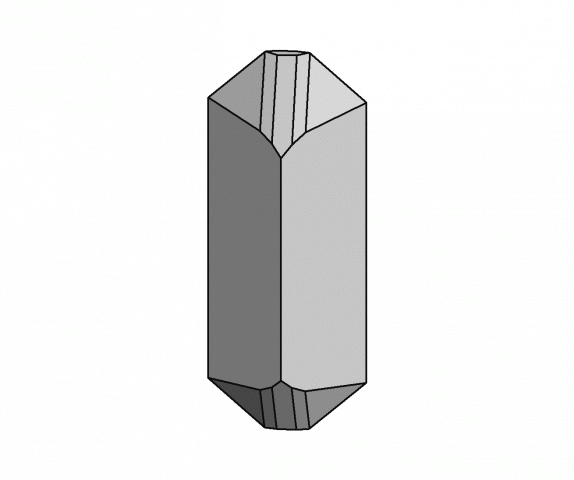
crystals system
monoclinic

OTHER INFORMATIONS

APPROACHING GEMS
Exploited
sites
It is found in Russia, Australia (Dundas, Tasmania), in Brazil, the Philippines and France (Pontgibaud, Puy de Dome).
use in jewelry
Extremely fragile crystals, it is baguette cut carefully. It loses the vividness of its color to light. It is a stone for collection of a very nice shine.
Venez visitez
notre site web
voillot-joaillier.fr
Lorem ipsum dolor sit amet, consectetur adipiscing elit. Ut elit tellus, luctus nec ullamcorper mattis, pulvinar dapibus leo.Lorem ipsum dolor sit amet, consectetur adipiscing elit. Ut elit tellus, luctus nec ullamcorper mattis, pulvinar dapibus leo consectetur adipiscing elit. Ut elit tellus, luctus nec.

